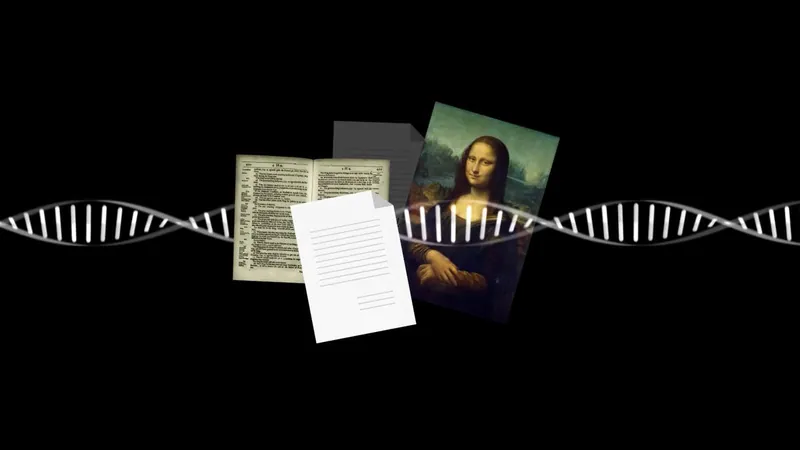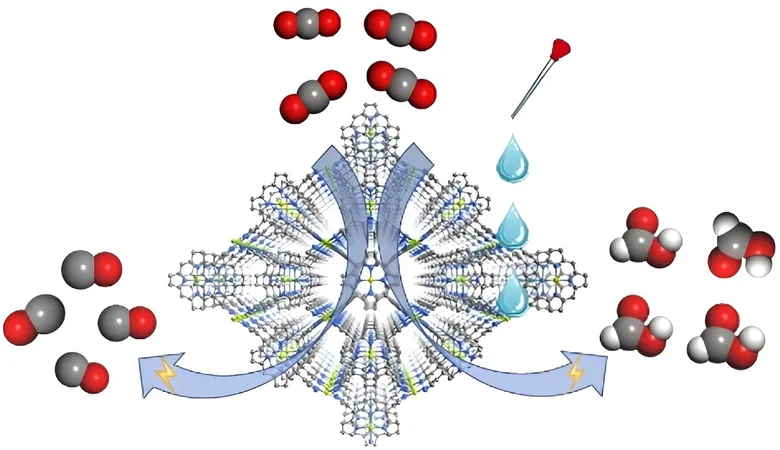
Could Synthetic DNA Revolutionize Data Storage and Save the Planet?
2024-10-07
Author: Charlotte
The Dilemma of Data Storage in the Digital Age
The digital age is facing a significant dilemma: the ever-expanding demand for data storage is putting immense pressure on our environment. The traditional 'cloud' system, essentially a network of colossal data centers worldwide, operates with staggering energy consumption and renders a massive carbon footprint. As we move forward, we may need to rethink what it means to store our data.
A Revolutionary Concept: Synthetic DNA Storage
A groundbreaking video by ScienceClic, produced in collaboration with Université Côte d’Azur and France's National Centre for Scientific Research, delves into a revolutionary concept: using synthetic DNA for data storage. This alternative has been tantalizingly close to practical application since 2013, and it's now being examined for its ability to dramatically reduce energy consumption while increasing data density.
How Does Synthetic DNA Storage Work?
Synthetic DNA storage works by encoding information in sequences of nucleotides, which are the building blocks of DNA. This method could lead to a storage capacity many orders of magnitude larger than conventional hard drives while being incredibly efficient. In fact, a gram of DNA can hold approximately 215 petabytes of data—a staggering amount compared to traditional storage methods.
Challenges Ahead
However, the transition to this innovative storage medium is not without its challenges. Scalability, cost, and stability remain major hurdles that researchers are working to overcome. But the potential rewards are immense, not only in terms of data storage capabilities but also in making technology more sustainable.
The Future of Data Management
As the video explores, ongoing research is focused on perfecting techniques for reading and writing data in DNA form, with hopes that, in the near future, data management could become more eco-friendly. With advances in synthetic biology and biotechnology, we could soon witness a significant shift towards a more sustainable form of data storage.
Implications of Synthetic DNA Storage
The implications of successfully implementing synthetic DNA as a standard for data storage could be transformative—profoundly impacting industries ranging from technology to healthcare. As we stand on the brink of this breakthrough, one question remains: will the promise of synthetic DNA storage be enough to pull us back from the brink of an environmental data disaster? Keep your eyes peeled; the future of our digital world may very well depend on it!









 Brasil (PT)
Brasil (PT)
 Canada (EN)
Canada (EN)
 Chile (ES)
Chile (ES)
 España (ES)
España (ES)
 France (FR)
France (FR)
 Hong Kong (EN)
Hong Kong (EN)
 Italia (IT)
Italia (IT)
 日本 (JA)
日本 (JA)
 Magyarország (HU)
Magyarország (HU)
 Norge (NO)
Norge (NO)
 Polska (PL)
Polska (PL)
 Schweiz (DE)
Schweiz (DE)
 Singapore (EN)
Singapore (EN)
 Sverige (SV)
Sverige (SV)
 Suomi (FI)
Suomi (FI)
 Türkiye (TR)
Türkiye (TR)